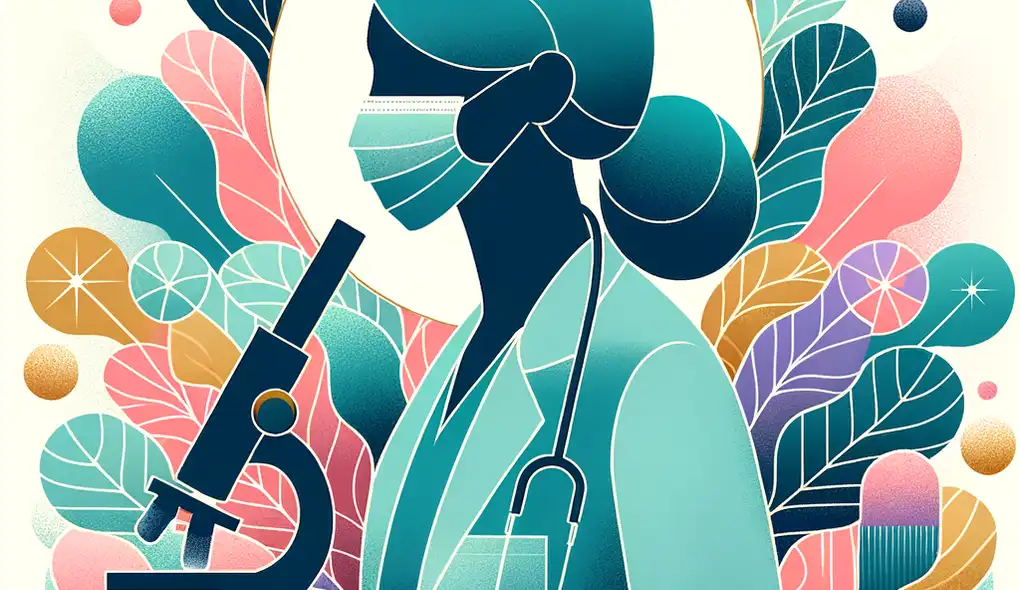What are the key skills required for a Clinical Laboratory Technologist?
Clinical Laboratory Technologist Interview Questions
Sample answer to the question
The key skills required for a Clinical Laboratory Technologist include analytical and critical-thinking skills, attention to detail and the ability to accurately record results, proficiency in using laboratory information systems and other relevant software, good manual dexterity and hand-eye coordination, effective communication skills, knowledge of modern laboratory techniques and equipment, and the ability to work independently and as part of a team.
A more solid answer
As a Clinical Laboratory Technologist, analytical and critical-thinking skills are crucial for interpreting test results and making accurate diagnoses. Attention to detail is essential in accurately recording test results and maintaining the integrity of data. Proficiency in using laboratory information systems and software is vital for efficiently managing specimens and accessing patient information. Good manual dexterity and hand-eye coordination are necessary for performing delicate procedures. Effective communication skills are important for collaborating with healthcare professionals and conveying information to physicians. Knowledge of modern laboratory techniques and equipment is essential for performing tests accurately and efficiently. Finally, the ability to work independently and as part of a team is necessary for maintaining productivity and delivering high-quality patient care.
Why this is a more solid answer:
The solid answer further expands on each key skill required for a Clinical Laboratory Technologist by providing specific details and examples to demonstrate the candidate's proficiency. It includes information on how each skill is applied in the role and why it is important. However, it could still benefit from additional examples and details to make the answer more comprehensive.
An exceptional answer
As a Clinical Laboratory Technologist, superior analytical and critical-thinking skills are essential for analyzing complex test results and identifying potential abnormalities or patterns. Attention to detail is crucial in accurately recording test data, ensuring proper labeling of specimens, and following strict protocols to maintain accuracy and quality in the laboratory. Proficiency in using laboratory information systems and software enables efficient management of laboratory workflows, tracking of specimens, and accessing patient information securely. Good manual dexterity and hand-eye coordination are vital for performing precise laboratory techniques and handling delicate instruments. Effective communication skills, both oral and written, are essential for collaborating with fellow laboratory professionals, conveying critical information to physicians, and documenting findings accurately. In addition, updated knowledge of modern laboratory techniques and equipment is necessary to adapt to emerging technologies and maintain competency in performing tests. Lastly, the ability to work independently and as part of a team ensures efficient workflow, effective collaboration, and high-quality patient care.
Why this is an exceptional answer:
The exceptional answer provides an in-depth explanation of each key skill required for a Clinical Laboratory Technologist. It includes specific examples and highlights how each skill contributes to the overall effectiveness and success of a laboratory technologist. The answer demonstrates a deep understanding of the role and the importance of each skill. It also emphasizes the candidate's commitment to continuous learning and staying updated with advancements in laboratory techniques and equipment. This level of detail and comprehensive explanation sets the answer apart and showcases the candidate's expertise and dedication to the profession.
How to prepare for this question
- Familiarize yourself with different laboratory tests and their purposes. Research common medical conditions and the corresponding tests used for diagnosis.
- Stay updated with advancements in laboratory techniques and technology by reading scientific journals, attending conferences, and participating in online courses or webinars.
- Practice attention to detail by consistently recording data accurately and following laboratory protocols meticulously. Use checklists or standard operating procedures to ensure precision.
- Develop your analytical and critical-thinking skills by regularly reviewing test results, analyzing patterns, and understanding the underlying scientific principles.
- Enhance your communication skills by actively participating in team discussions, presenting findings to colleagues or supervisors, and seeking feedback for improvement.
- Seek opportunities to improve manual dexterity and hand-eye coordination through activities such as practicing laboratory techniques, using specialized instruments, or engaging in hobbies that require precise movements.
- Consider pursuing additional certifications or advanced degree programs to broaden your knowledge and demonstrate your commitment to professional growth.
- Prepare examples and stories that demonstrate your ability to work independently and as part of a team. Highlight experiences where you have effectively collaborated with healthcare professionals and contributed to positive patient outcomes.
What interviewers are evaluating
- Analytical and critical-thinking skills
- Attention to detail and accurate record-keeping
- Proficiency in using laboratory information systems and software
- Manual dexterity and hand-eye coordination
- Communication skills
- Knowledge of modern laboratory techniques and equipment
- Ability to work independently and as part of a team
Related Interview Questions
More questions for Clinical Laboratory Technologist interviews